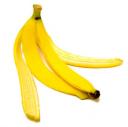
People believe they’re good at drawing…or bad at drawing
How this this crazy notion come about? How did we get it into our heads that we were good or bad at something? I’ll tell you how.
Let’s take drawing, because most people simply can’t draw…
So why can’t they draw? Is it because they’re not talented? Let’s see, shall we?
Imagine a skill you’re good at: Like walking around a banana peel, for instance.
Imagine someone put five banana peels in your path.
Or ten. Or twenty-five. Or even fifty.
Would you be able to avoid the banana peel, and walk right along?
Silly question, eh? But what’s the banana peel got to do with your brain?
The brain recognised the danger of the peel. It recognised that the peel could create damage.
You could slip; fall; hurt yourself; even die.
So the brain pays attention. It prevents you from stepping on the peel in the future.
Drawing, on the other hand, doesn’t cause you to slip; fall or hurt yourself.
So your brain has no need to pay attention.
Yet, imagine you did a drawing as a child.
Imagine that every time you did that drawing you were slapped.
Not just slapped hard across the face. But ridiculed. And punished.
What are the chances you’d become really outstanding at drawing?
Pretty slim, huh?
So let’s take the exact opposite. Let’s say you did the drawing, and your mother was really excited. She showed it to everyone. She told you (and told the world) how talented you were. She brought you more crayons. More paper. More encouragement. And despite being ‘lousy’ at drawing, she felt no intimidation when showing you—a little child—how to draw.
And so the stirrings of talent begin.
You become talented.
You draw more.
You use drawing as a weapon to get attention.
You spend more time, understanding the medium and patterns better.
You get more attention. You draw even more. And the attention feeds on itself, resulting in more effort, more training.
And voila, you’re an artist.
You see it’s stupidity that causes us to believe in talent.
Talent is nothing but a seed, well watered.
Which is why most of us have a ‘talent’ to speak almost one language.
Most of us have a ‘talent’ to press door bells, and speak on phones.
Most of us have a ‘talent’ to recite and write our alphabet from one end to the other.
Which brings us back to drawing
Surely drawing is a lot more complex than reciting and writing the alphabet.
You think so? Tell that to a three-year old child.
Watch as she struggles with just the letter A. Or B. Or the combination of A, B and C.
So what makes her talent grow?
It’s the banana peel of life.
Her parents know that that child will ‘slip and fall’ if she doesn’t learn her alphabet.
So they make the alphabet fun. They show the child a cat. And say the letter C.
They show the child a ball, and you guessed it, it’s the letter B.
And soon, every child becomes a genius at the alphabet.
And you know what, if you are a genius at the alphabet, I can indeed teach you how to draw using NOTHING but the alphabet.
And could you then become a genius at drawing?
Hmmm…food for thought, eh?
So what are your questions? Because as you can tell, this is indeed going to be a long, long series.
